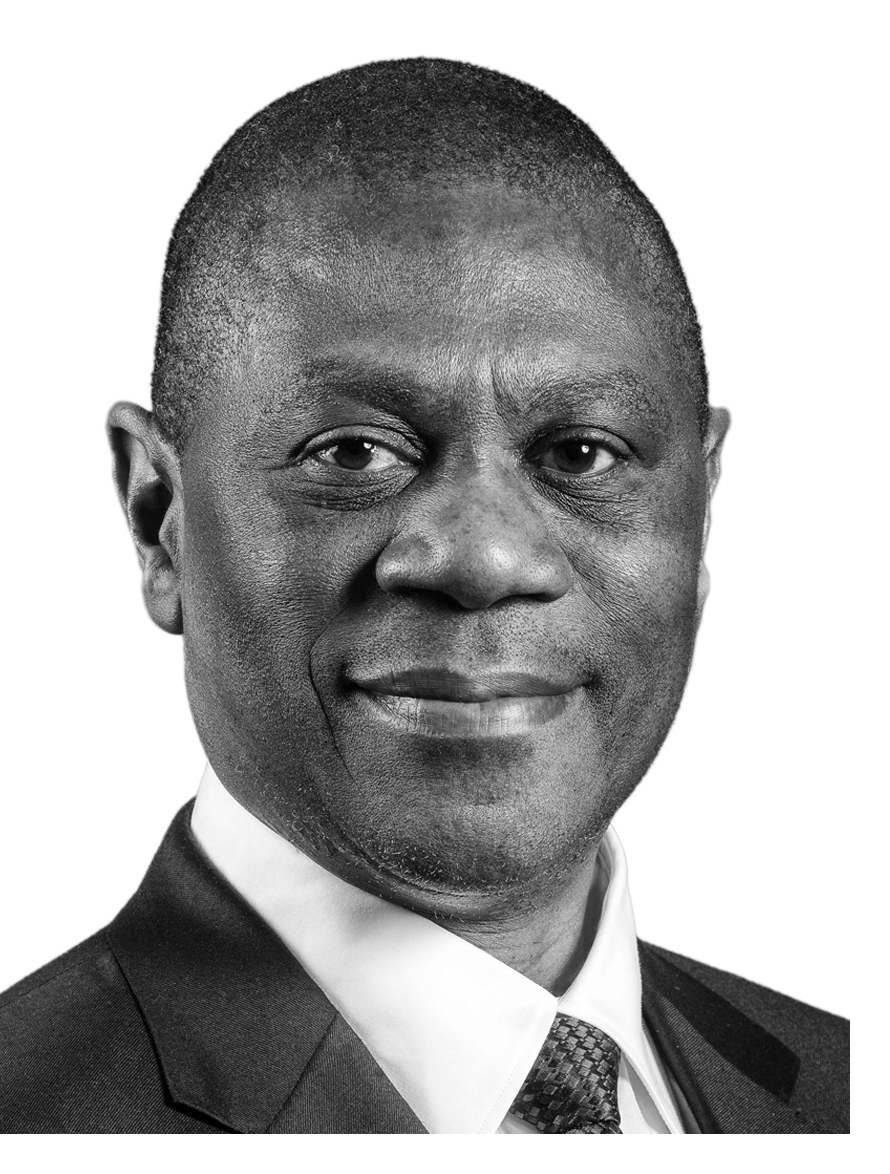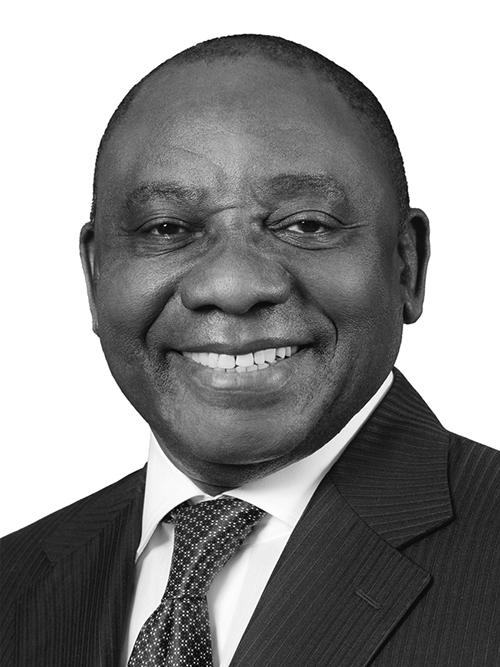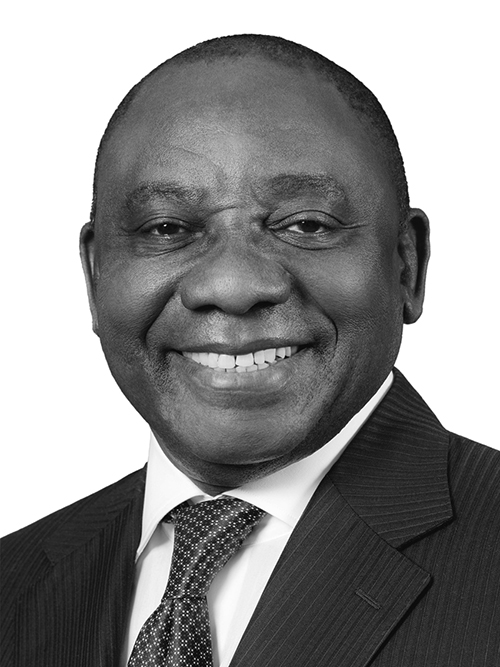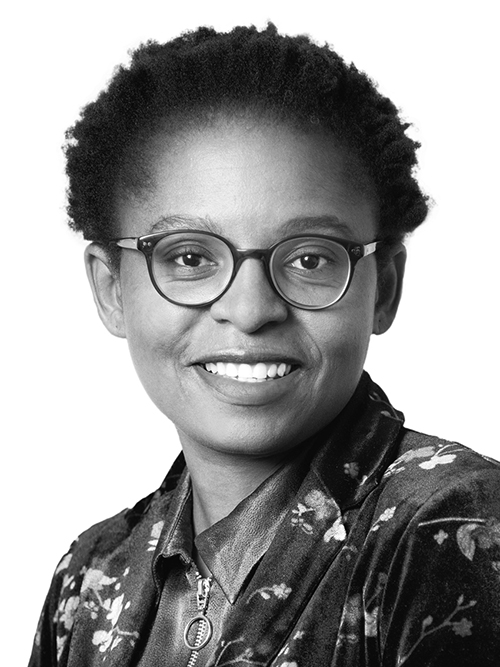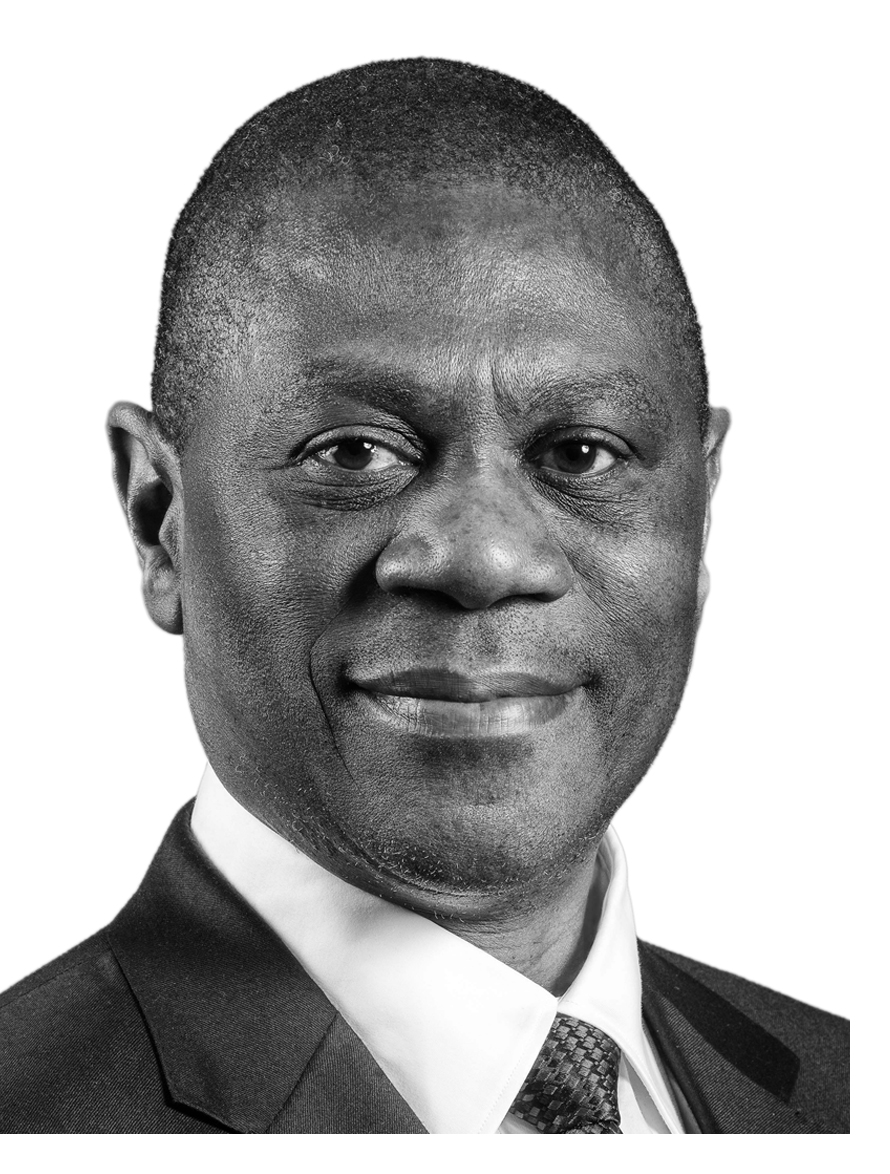Programme Director, MEC for Health, Ms Nomagugu Simelane-Mngadi;
Our gracious host, KwaZulu-Natal Premier Thamsanqa Ntuli;
Minister of Health, Dr Aaron Motsoaledi;
Ministers and Deputy Ministers present;
MECs for Health from Gauteng, Free State, Mpumalanga, Eastern Cape, North West and Limpopo Provinces;
Members of Parliament and Provincial Legislatures present;
Chairperson of the SANAC Civil Society Forum and Co-Chairperson of SANAC, Mr Solly Nduku;
Deputy Chairperson of the SANAC Private Sector Forum, Dr Tshegofatso Gopane;
Patron of Global Alliance in South Africa, Mrs Humile Mashatile;
SANAC CEO, Dr Thembisile Xulu;
Executive Mayor of Ugu District, Cllr Skhumbuzo Mqadi;
Mayor of Ray Nkonyeni Local Municipality, Cllr Zodwa Mzindle;
SALGA President, Cllr Bheke Stofile;
Chairperson of KwaZulu-Natal House of Traditional and Khoi-San Leaders, Inkosi Shinga;
Our esteemed Traditional and Khoi-San Leaders present;
Faith based leaders; Members of the media;
Distinguished Guests,
Sanibonani Nonke eGamalakhe!
Ngiyabonga ukuthi ningamukele lapha eGamalakhe. Ngithandi ukunitshela ukuthi ngiyanithanda kakhulu!
Compatriots,
Today, we join the global community to commemorate World TB Day. We unite as a nation with a shared purpose: to end tuberculosis (TB).
This day is both a reminder of the challenges we face and a call to action. South Africa bears one of the highest TB burdens in the world, but we also stand on the threshold of real change. Yes, we can end TB. And together, we will!
March is Human Rights Month, and last week, we commemorated this day in the Eastern Cape. As South Africans, we were reminded of where we come from, and the prize paid for our freedom. This day was also a moment for us to collectively chart a way forward on where we should go as a nation towards building a united and prosperous South Africa.
It is in this context that we should also reflect on the progress made in the fight against TB and HIV-related stigma and discrimination.
Two years ago, SANAC embarked on a process to develop Human Rights Charters for key populations in all provinces. These include Human Rights issues identified in communities.
That process has now been completed, although some provinces are yet to launch their Charters. The Charters emphasise the need to protect TB and HIV-related human rights, particularly the need to address stigma against people with TB. The Human Rights hubs in the provinces, supported by AIDS Councils, will ensure that these issues are followed up and addressed.
An assessment of the Human Rights Programme under Global Fund support, called Breaking Down Barriers, identified that:
• There is a need to develop national-level plans for scaling up and institutionalising HIV, TB, and human rights training for health workers and law enforcers. The next financial year will be key in developing those plans.
• TB programmes remain under-served compared to HIV and human rights programmes. There is an urgent need to implement national-level TB stigma and discrimination reduction programmes and to engage community-level networks and organisations in district-level efforts. This will also be prioritised in the next financial year.
The Stigma Index Report by People Living with HIV is being finalised, and the recommendations from the survey will guide the country’s response to TB and HIV stigma.
I am also aware that SANAC is also in the process of developing the next human rights strategy for HIV and TB, which will strengthen and guide the country’s human rights interventions in alignment with Goal One of the National Strategic Plan for HIV, TB, and STIs, which speaks to breaking down barriers.
Ladies and Gentlemen,
TB continues to claim too many lives around the world. In South Africa in 2023, around 270 000 people were diagnosed with TB, and tragically, 56 000 lives were lost, which translates to 153 people every day. TB knows no boundaries—it affects people across all communities, but the burden falls most heavily on the poor and vulnerable.
Furthermore, in 2023, an estimated 58 000 people with TB were not diagnosed. These are our mothers, fathers, brothers, and sisters—people who deserve care and dignity. We must reach them! TB is not just a medical issue; it is a human rights issue. Every person, regardless of their background, deserves access to life-saving treatment.
South Africa is among 30 countries that account for 87% of the global TB burden. It is also among the 10 countries battling the triple burden of TB, HIV and TB co-infection, as well as drug-resistant TB. Yet , TB is a disease that is preventable and perfectly curable, even if one is living with HIV.
We must, therefore, work much harder to change this situation. Hence, before we started the programme we visited families that require support. I urge you Premier Ntuli and MEC Simelane that this should be our daily programme. We must visit families as prevention is the foundation of primary health care. This is the other reason we have this commemoration, which is to remind ourselves that TB is out there, and it kills; however, we hold the power to end it!
Compatriots,
The government is maximising efforts towards defeating tuberculosis by using this day to intensify the following four critical objectives:
1. To Raise Awareness - by promoting preventive measures, early diagnosis, and effective treatment.
2. To Promote Access to Care – by providing universal access to quality healthcare services, including psycho-social support for everyone infected and affected by TB.
3. To Advocate for Research and Innovation - for the development of new vaccines, diagnostic tools, and treatments to end TB.
4. To Strengthen Partnerships - for collaborative approaches through multi-sectoral role players including governments, health organisations, civil society and the private sector to share resources and expertise.
Through these four objectives, we hope to strengthen TB prevention, improve treatment success, including for people living with HIV, strengthen the linkage of people diagnosed with TB to treatment and care, as well as reduce TB-related stigma, discrimination and other forms of human rights violations in our communities.
Compatriots,
In line with the global community, this year’s official commemoration theme “Yes, You and I can End TB” has been retained from last year, however, it now features the tagline: “Commit, Invest, Deliver”.
The emphasis is on leaders championing TB efforts in their respective constituencies. The theme also promotes individual action as a means of contributing to the national effort against tuberculosis by using the phrase "You and I".
"You and I” boNdabezitha, our esteemed Traditional Leaders, underscores the importance of personal accountability and collective efforts in eradicating tuberculosis.
We rely on your support and collaboration to eradicate tuberculosis as a public health threat in rural communities.
“You and I” is a statement of intent, designed to encourage individuals to take charge of their health. It is in line with the “Cheka Impilo” National Wellness Campaign objectives, as well as the country’s efforts towards finding the missing TB patients.
Today, we are launching the “END TB” campaign aimed at testing five million people by the end of March next year, and annually thereafter. This will, in turn, result in a 29% reduction in TB incidence and a 41% reduction in TB mortality by 2035.
Under SANAC coordination, we will embark on a mass mobilisation drive to rally all South Africans behind the End TB Campaign. We will work with community leaders, traditional healers, and media platforms to spread the message that TB is preventable, treatable, and curable.
Individuals who are close contacts of confirmed TB patients will be tested regardless of symptoms. People living with HIV will be tested for TB annually, and individuals who have completed TB treatment are to be tested for TB twice during the year after treatment completion. By this time next year, we would have found and tested those 5 million people. We have the will, the infrastructure and the resources to do so!
Even with all the TB challenges you have heard about today, South Africa is still a global leader in the introduction of novel TB drugs and treatment regimens, as well as innovative diagnostic tools and approaches.
We are now standing at the threshold of a TB vaccine breakthrough. The "M 72 TB" vaccine trials conducted in South Africa have so far yielded promising results. We are indeed readying ourselves for local manufacturing and a rapid national roll-out once all procedural protocols have been met.
Our country was among the first to roll out bedaquiline as part of our national Drug-Resistant TB treatment Programme, replacing the older injectable drugs. We have also pioneered the implementation of shorter, all-oral medicines, significantly improving treatment outcomes and reducing side effects for patients. This is a clear demonstration of our strong commitment as government in the fight against TB.
Of course, we cannot look at TB in isolation from HIV. In the face of high co-infection rates, we must respond to the two epidemics concurrently. That approach is one of the main reasons behind the push for the integration of services at health facilities.
South Africa has an estimated 7.8 million people living with HIV, and while 7.5 million of them know their status, only 5.9 million are on antiretroviral treatment. From these figures, it is clear that the country is making significant progress towards achieving the UNAIDS 95-95-95 targets; however, significant challenges persist with the second 95, which speaks to initiation and retention on treatment. The country is currently sitting at 96-79-94.
In response to the gap in the second 95 target, the Minister of Health through SANAC launched an HIV Treatment Campaign called “Close the Gap”, last month. This Campaign aims to find the 1.1 million people who know their HIV status, but are not on treatment, by December of this year.
The campaign will leverage existing interventions, such as the "Better Man 4 Tomorrow" men's health campaign, to increase demand for HIV testing, treatment, and prevention. The 1.1 million figure is broken down by provinces, giving each province a specific target. We call on all Premiers, working with their Provincial AIDS Councils, to make this campaign a success.
When we educate people about TB, one thing that we don't typically address is the importance of cleanliness. Although TB is transmitted through airborne particles when an individual with active TB coughs, sneezes, or speaks, hygiene remains crucial for maintaining overall health and preventing other infections that can exacerbate Tuberculosis. Consequently, we have discussed and agreed on a plan for clean cities and communities campaign with SALGA. We want to promote the cleanliness of cities and communities. Keeping our surroundings clean and educating the public about TB prevention and the importance of respiratory hygiene is essential.
Compatriots,
Since last year’s World TB Day, South Africa has also made significant strides in data-driven health responses. The National Department of Health is testing and piloting a new Electronic Medical Record and has developed the Health Information Centre.
The quality of our HIV, TB and STI data has improved significantly since the launch of the SANAC Situation Room, on World TB Day last year.
The SANAC Situation Room is a state-of-the-art data consolidation and visualisation hub built at the SANAC offices in Pretoria but is accessible virtually from anywhere in the world.
During the launch, we stated that South Africa generates large data across various parts and entities. The data exists in silos, and that fragmentation is due to the lack of a central data repository and management point. The SANAC Situation Room has been set up precisely to address that challenge.
Accurate and good-quality data enables us to review trends and assess progress in our efforts to address the epidemics of HIV and TB. This, in turn, assists decision-making and the effective allocation of resources towards interventions.
Since its launch, the platform has seen an increase in users interacting with it and using the available data more frequently. Currently, the platform is moving towards developing public-facing real-time dashboards to close the information gap, especially at the community level, where data should be available to inform tailored interventions.
Programme Directors,
The recent “PEPFAR Pause” has disrupted critical TB programmes, threatening progress in case detection, treatment access, and research efforts. This underscores the urgent need for contingency planning and building a resilient health system that can withstand external shocks, ensuring uninterrupted TB services and long-term sustainability.
With a shift towards country-led service delivery, South Africa must strengthen sustainability planning at national and provincial levels. We need to re-think HIV and TB service delivery models and transition to country leadership. Contingency planning is essential to absorb the short-term shocks resulting from the PEPFAR situation, a process currently driven by the National Department of Health.
However, as HIV and TB become more integrated into primary health care and frontline services, responsibility for service delivery transitions from external funders.
Adaptation and preparedness are crucial to ensure the sustainability of HIV and TB programmes.
Throughout the transitions, we want to emphasise to all South Africans – that TB and HIV services and treatment are still available for free at all public health facilities!
We have a moral obligation to those who have died as a result of this disease, as well as those who are still suffering from TB. Working together, we will deliver on our promise of ending TB as a public health threat!
Ending TB is within our reach! The fight against TB is a fight for justice, equity, and a healthier future for all South Africans. May we rise to this challenge together!
We can, and we will End TB!
Yes! You and I Can End TB!
Ngiyabonga, I thank you.



